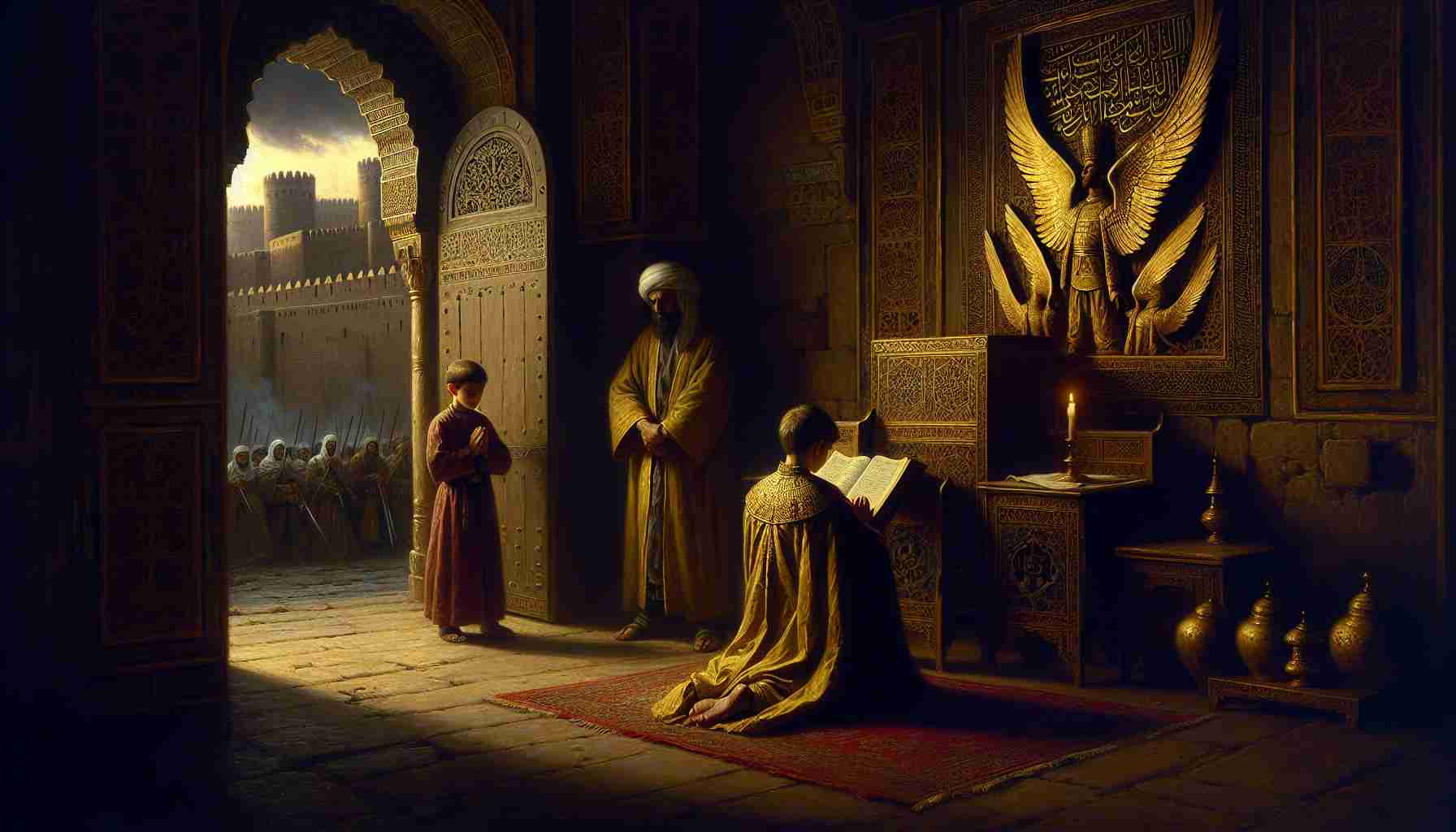

I wasn’t a soldier. I wasn’t a scribe or priest. I was the man who swept the palace courtyards, quiet as dust. Most never noticed me. But I saw everything.
That day, I was finishing my morning rounds when I heard whispers sweeping through the gates like a sudden wind: messengers had arrived—from King Sennacherib of Assyria. Assyria—the strongest empire in the land. And their army was camped just beyond the walls of Jerusalem.
I tucked my broom into a corner and followed the whispers. In the courtyard, I saw the scroll—sealed with the Assyrian crest. It was brought directly before King Hezekiah. I caught a glimpse of his face as he read it. His cheeks lost all color. No one spoke. The silence felt heavier than any sword.
I stayed hidden in the shadows, heart pounding in my chest. The letter was not just a threat—it mocked our God. Sennacherib demanded we surrender. He named the cities he had destroyed, the gods of nations he had crushed—and dared to speak of our God the same way.
That night, no music came from the palace. No lamps burned late. The city sank into fear. Mothers clutched their children, and even the guards stared out beyond the walls with dread in their eyes. I could think of nothing but dust and death.
But the next morning, something changed.
I saw King Hezekiah walking toward the Temple—the central place of worship for our people. He clutched the scroll in his hands like it held a spear tip pressed to his chest. I followed him at a distance.
Inside the Temple, I paused just outside the great hall. I couldn’t hear every word, but his voice rang out with such raw pain and faith that it burned into my memory.
He laid the letter before God. Not with anger. Not with pride. But with full, broken honesty.
“God of Israel,” he cried out, “You alone are God over all the kingdoms of the earth. Only You made heaven and earth. Please, see and hear. Rescue us, so that all the kingdoms of the world may know that You alone are God.”
I don’t know how long he stayed there. I couldn’t move. Something in his voice gripped me. He wasn’t begging out of fear. He was surrendering—with strength.
That night, word came from the prophet Isaiah: God had heard, and God would act.
Then came the morning none of us could have imagined.
Not a single Assyrian soldier entered Jerusalem. In the night, their army had fallen—struck not by man, but by God’s hand. One hundred eighty-five thousand soldiers defeated without a sword drawn. Sennacherib fled. And our city stood unharmed.
I still sweep the same stones. But I am not the same man.
That day, I learned the greatest power isn’t found in armies or gold. It’s found in the voice of a king who prays with his whole heart—and in the God who listens.
I wasn’t a soldier. I wasn’t a scribe or priest. I was the man who swept the palace courtyards, quiet as dust. Most never noticed me. But I saw everything.
That day, I was finishing my morning rounds when I heard whispers sweeping through the gates like a sudden wind: messengers had arrived—from King Sennacherib of Assyria. Assyria—the strongest empire in the land. And their army was camped just beyond the walls of Jerusalem.
I tucked my broom into a corner and followed the whispers. In the courtyard, I saw the scroll—sealed with the Assyrian crest. It was brought directly before King Hezekiah. I caught a glimpse of his face as he read it. His cheeks lost all color. No one spoke. The silence felt heavier than any sword.
I stayed hidden in the shadows, heart pounding in my chest. The letter was not just a threat—it mocked our God. Sennacherib demanded we surrender. He named the cities he had destroyed, the gods of nations he had crushed—and dared to speak of our God the same way.
That night, no music came from the palace. No lamps burned late. The city sank into fear. Mothers clutched their children, and even the guards stared out beyond the walls with dread in their eyes. I could think of nothing but dust and death.
But the next morning, something changed.
I saw King Hezekiah walking toward the Temple—the central place of worship for our people. He clutched the scroll in his hands like it held a spear tip pressed to his chest. I followed him at a distance.
Inside the Temple, I paused just outside the great hall. I couldn’t hear every word, but his voice rang out with such raw pain and faith that it burned into my memory.
He laid the letter before God. Not with anger. Not with pride. But with full, broken honesty.
“God of Israel,” he cried out, “You alone are God over all the kingdoms of the earth. Only You made heaven and earth. Please, see and hear. Rescue us, so that all the kingdoms of the world may know that You alone are God.”
I don’t know how long he stayed there. I couldn’t move. Something in his voice gripped me. He wasn’t begging out of fear. He was surrendering—with strength.
That night, word came from the prophet Isaiah: God had heard, and God would act.
Then came the morning none of us could have imagined.
Not a single Assyrian soldier entered Jerusalem. In the night, their army had fallen—struck not by man, but by God’s hand. One hundred eighty-five thousand soldiers defeated without a sword drawn. Sennacherib fled. And our city stood unharmed.
I still sweep the same stones. But I am not the same man.
That day, I learned the greatest power isn’t found in armies or gold. It’s found in the voice of a king who prays with his whole heart—and in the God who listens.